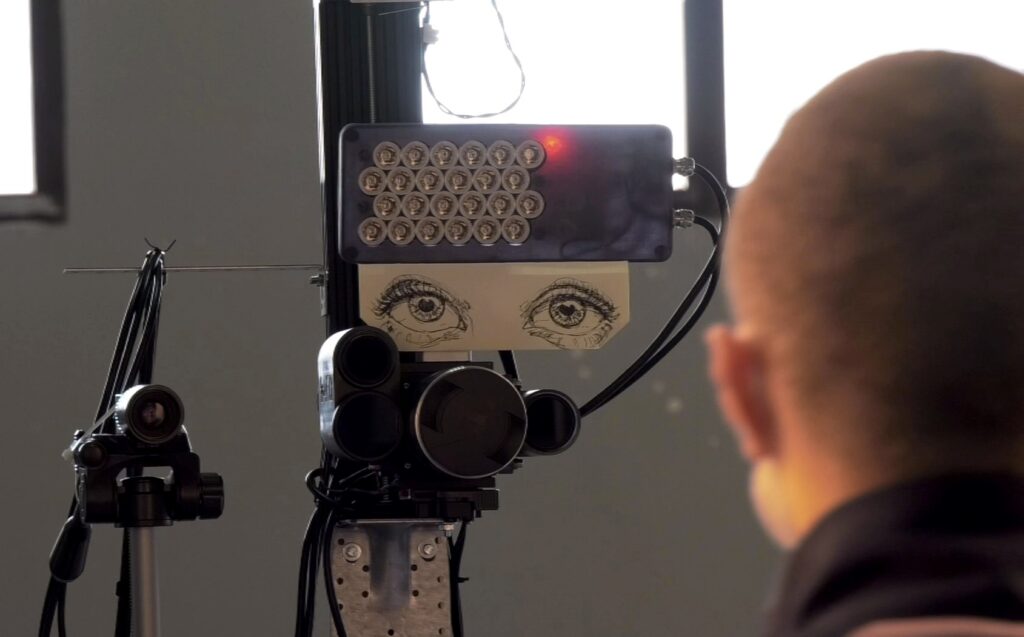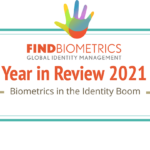The number of travelers at airports is increasing worldwide. It’s about time to use innovative technologies to research the border controls of the future and make them suitable for practical use. The D4FLY research project was launched to enable the safe and at the same time comfortable travel experience of tomorrow.
The world is becoming increasingly mobile – and the growing number of passengers, especially at airports, poses new challenges for the efficient and secure handling of border controls and identity checks. The D4FLY research project, funded by the European Union and led by Veridos, aimed to find answers to the pressing issues of international mobility and border crossing. The focus was on developing new technologies and secure systems to make contactless, convenient and secure travel a reality in the future. With a total of 19 different partners from 11 different countries, including institutes, universities, border control authorities, and companies from industry and business, Veridos, as the overall coordinator, developed products and technologies between 2019 and 2022 that, depending on their degree of maturity, are either already in use today, are close to final product maturity, or require further basic research that will continue even after the official end of the project. One of the key challenges is the implementation of new security components for travel documents that are both difficult to counterfeit and can be quickly and securely verified by the relevant authorities. The automated document verification solutions developed in the D4FLY project will help border officials detect counterfeit IDs faster and more clearly, for example by using innovative printing techniques, special colors and state-of-the-art optical effects.

Veridos and its partners also focused on image elements and the development of solutions for automated facial recognition. 3D facial recognition has particular potential, using advanced light-field cameras, specialized algorithms and powerful neural networks to achieve far greater accuracy than traditional 2D technology. Although AI and ML concepts require large amounts of data, they could prove to be the decisive game changers whose use in automated border control systems will deliver results that far surpass all current solutions. The D4FLY consortium considered both the great potential as well as the ethical, social and legal aspects of these technologies. These also play an important role in another focus of the project, the biometric corridors. In the future, the high-tech corridors will be able to ensure border control “on the move”; passengers will no longer have to stand in long queues, but their identity will be automatically verified as they move through a designated corridor. These biometric checks are an important part of the seamless travel of the future, in which the passenger’s entire journey will take place without the numerous points of contact with staff and authorities that are still unavoidable today. This requires travelers to voluntarily provide their reference data, which the system compares with images taken in the corridor. The D4FLY consortium has developed a prototype kiosk that can capture biometric and biographical data.
At many airports, we can already see the digitization of travel taking concrete shape with the introduction of eGates, for example. In addition to more efficiently handling growing passenger volumes, border automation technologies can and must also enhance security. Veridos relies on close collaboration with partners and cross-industry cooperation to really drive these and other developments forward and enable them to be put into practice one day. This was the case with the D4FLY tests, which investigated effective techniques for detecting presentation attacks, such as people wearing face masks to defeat biometric verification technology.
The D4FLY project provided innovative technology solutions for the secure and convenient digital passenger experience of the future – and laid the groundwork for further development and research into the technologies required. After three years of intensive work, Veridos is positive about the results and more than optimistic about the digital future of travel.
For more information: www.veridos.com
—
This is a guest post sponsored by Veridos. The views expressed in this article reflect those of the sponsor and are not necessarily the views of FindBiometrics and Mobile ID World.







Follow Us